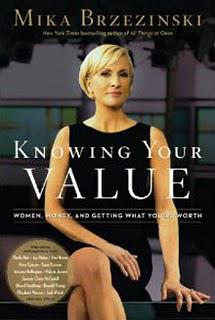
I guilt easily. Or at least I used to. Like many women, I reproached myself for not being the mother, daughter, friend, teacher, writer, and coworker I thought I should be. I’d beat myself up for exercising too little and snacking too much, for being too organized—yes, I’m serious—and not productive enough. Oh and I’d even occasionally feel guilty about genocide and world hunger, things over which I obviously have no control.
When I say "like many women," what I really mean is most. A recent survey by Stylist magazine found that more than 96 percent of us feel guilty at least once a day. As Erica Jong once famously said: “Show me a woman who doesn’t feel guilty and I’ll show you a man.”
Some of this can be attributed to wiring. According to researchers, women are generally more empathic than men, more acutely aware of others’ feelings. But some of this also comes down to women’s generalized lack of self-worth, reinforced over the millennia by cultural and religious tenets. We’ve been taught from an early age to be “good” and that being good means putting others first. When we don’t, we quickly feel bad.
Whatever the cause of my guilt, I realized somewhere along the line that I was wasting a lot of precious energy on it, energy that once freed up, could be used in more fruitful ways. I also realized that if I didn’t value myself, others wouldn’t either.
So how did I get out of the guilt trap? Believe me, it’s on ongoing process, but basically…
- I stopped “shoulding” on myself. If I was exhausted after a long day, but felt like I should call a friend to see how she was doing, I asked myself whether I really needed to pick up the phone right then. Couldn't it wait until tomorrow? Couldn't I email instead? In other words, when I heard myself saying the word “should,” I paused a moment and asked myself, “Who says?” Then I looked for alternative solutions.
- I started putting my needs on par with my loved ones'. I didn’t go to the opposite extreme and insist on putting my needs first--although, frankly, if I don’t, who will?--but I tried to be good to myself. I no longer left that last piece of pie for someone else or felt like I had to stop whatever I was doing to rush downstairs and make dinner for my husband who, after all, is perfectly capable of making dinner himself. I reminded myself that when I’m unhappy, I’m neither good company nor in much of a position to help others.
- I embraced my imperfections. Rather than struggling to conform to some ideal, I decided to just be myself. I finally recognized that my imperfections are the most interesting and, dare I say, lovable thing about me. Just as only a handful of genes separate us from the apes, only a few quirky traits make us the individuals we are. I decided to exalt those aspects of myself rather than try to eliminate them.

